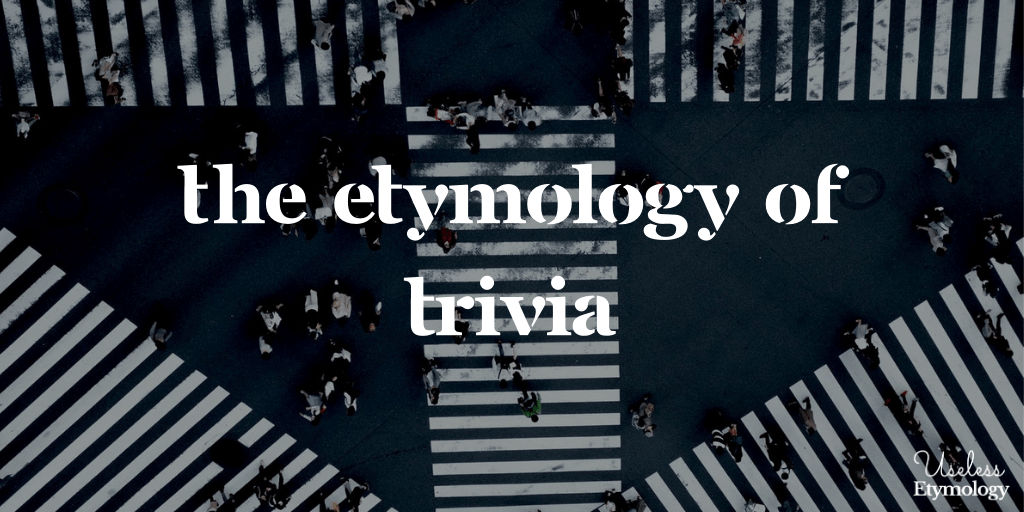The lessons I share here are often classifiable as trivia: little bits of information that are of little consequence outside of being curiosities. You might call them “trivialities”—even though I, and most of you, agree that words and their origins are not trivial and do matter a great deal.
Trivia is a Latin word, the plural of trivium. The related Latin trivialis, meant “common or ordinary.” But the literal meaning of the Latin trivium is “a place where three roads meet.”
What? What does a three way crossroads have to do with interesting morsels of mostly useless information?
The Roman Empire was famously connected by public roads, many of which still exist across Europe today, often in much better condition than our contemporary asphalt roads. The intersections of these roads, especially three or more, were a great place for the public, or plebeians, from different places to meet, hang out and trade goods. Thus crossroads came to be known as distinctly public, or common places where inconsequential or trivial things were said and done.
The word trivial appeared in English as early as the 1500s, but “trivia” took longer to get there. It was the name of a book about streets and crossroads in 1716. And then its “fun facts,” sense came around after 1902 when Logan Pearsall Smith published a series of books called Trivia. Smith was known for his clever sayings and essays, and his Trivia books were full of interesting little observations about public life and human behavior. (The book is available for free on Gutenberg.org and I highly recommend reading a few of the tidbits from it.)
By 1965, trivia had become the name of an informal college game where players would quiz one another, and then it was fully popularized in 1982 with the game Trivial Pursuit—which you can see is a pun, because the facts and the game are “trivial” and because the board features several crossroads.

